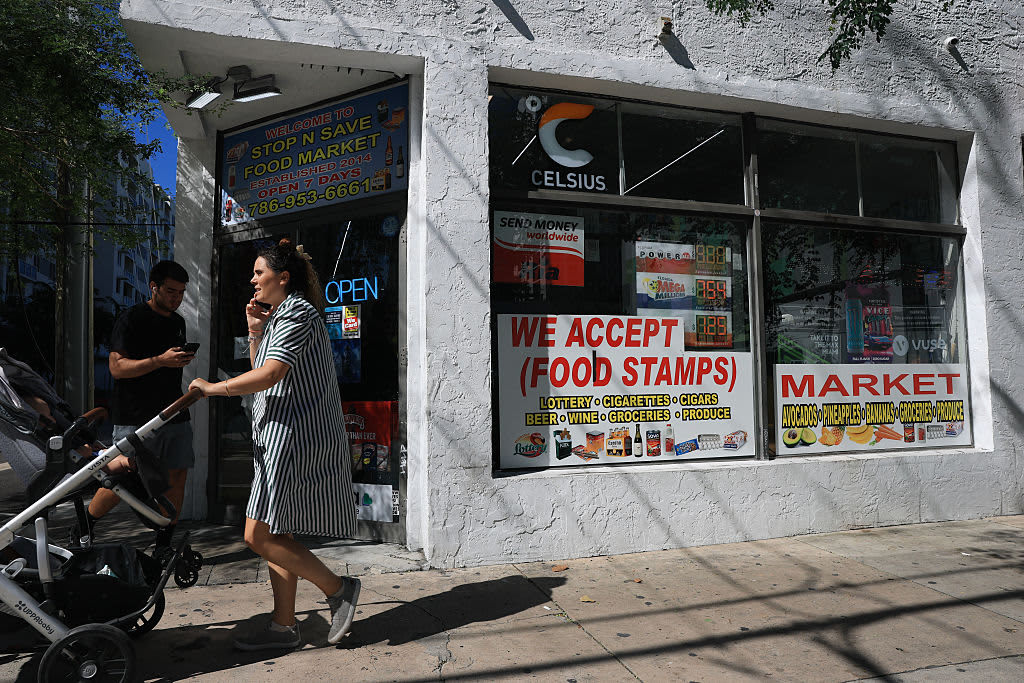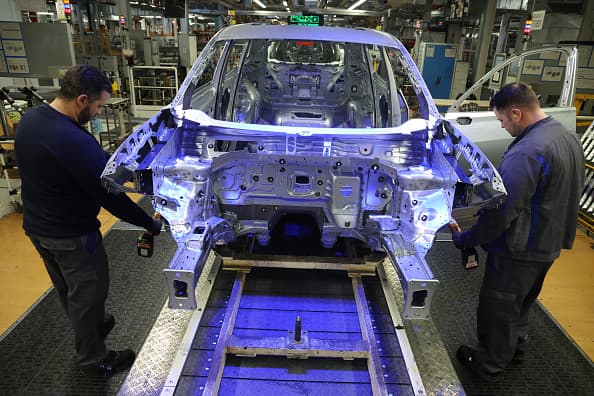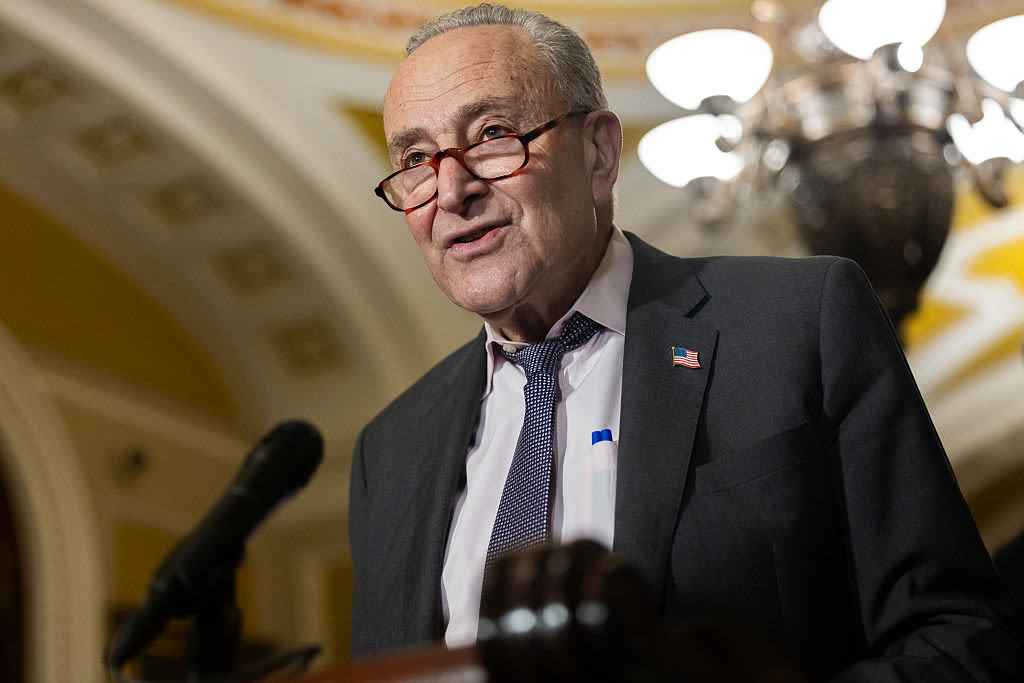
The Supreme Court on Friday night paused a federal judge’s order that the Trump administration must pay full SNAP benefits to 42 million Americans for November by the end of the day.
The move came hours after a federal appeals court in Boston denied the administration’s request to halt the order, which relates to food stamp benefits for one-in-every-eight Americans.
It is not clear to what extent the Supreme Court ruling will actually affect the payments of SNAP benefits.
The U.S. Department of Agriculture earlier in the day told states it would begin disbursing full SNAP benefits to comply with the lower court order, even as the administration sought to overturn that order. The USDA’s memo does not suggest that the administration would renege on that plan even if a court blocks the order.
But in its emergency application to the Supreme Court, the administration said, “This Court’s intervention is urgently needed.”
“To comply with yesterday’s abrupt [temporary restraining order], the government must transfer billions of dollars to SNAP and send that money to the States by tonight,” the filing said. “Once those billions are out the door, there is no ready mechanism for the government to recover those funds — to the significant detriment of those other critical social programs whose budgets the district court ordered the government to raid.”
The legal moves came hours after the Trump administration asked the 1st Circuit U.S. Court of Appeals to allow it to pay 65% of the food stamp benefits from a contingency fund, as the administration proposed to Rhode Island federal court Judge Jack McConnell this week.
McConnell rejected the partial payment option on Thursday.
The judge also ordered that the U.S. Department of Agriculture use so-called Section 32 funds to help fully fund the SNAP benefits, along with the $4.65 billion it already planned to use from the contingency fund.
The administration previously refused to use Section 32 funds for that purpose.
A three-judge panel on the 1st Circuit noted in its order Friday that “the government has not disputed that it may under [federal law] use the Section 32 fund to cover the provision of SNAP benefits for the month of November.”
“The request for an administrative stay is denied,” the appeals panel said.
But the panel also said that the “government’s motion for a stay pending appeal remains pending, and we intend to issue a decision on that motion as quickly as possible.”
Attorney General Pam Bondi called the rulings “judicial activism at its worst.”
“A single district court in Rhode Island should not be able to seize center stage in the shutdown, seek to upend political negotiations that could produce swift political solutions for SNAP and other programs, and dictate its own preferences for how scarce federal funds should be spent,” Bondi wrote in a post on the social media site X.
“With hours to go before the [temporary restraining order] compliance clock runs, and the First Circuit waiting to deny immediate relief until minutes ago, we have filed an emergency stay application in the Supreme Court requesting immediate relief,” Bondi said.
“As our Supreme Court brief puts it: ‘The core power of Congress is that of the purse, while the Executive is tasked with allocating limited resources across competing priorities,’ ” Bondi wrote. “‘But here, the court below took the current shutdown as effective license to declare a federal bankruptcy and appoint itself the trustee, charged with picking winners and losers among those seeking some part of the limited pool of remaining federal funds.'”
In its filing Friday with the appeals court, the Trump administration said that the “crisis” of the lack of regular funding for full SNAP payments “can only be solved by congressional action.”
Congress, since Oct.1, has repeatedly failed to pass a stopgap funding appropriation that would allow the government to reopen, and which would fully fund the Supplemental Nutrition Assistance Program, which helps feed about 1 out of every 8 Americans.
Justice Department lawyers wrote in the filing that instead of Congress passing new SNAP funding, “a single district judge has devised his own solution: ordering USDA to cover the SNAP shortfall by transferring billions of dollars that were appropriated for different, equally critical food-security programs —and to do so within just one business day (i.e., by today).”
“This unprecedented injunction makes a mockery of the separation of powers,” the lawyers wrote. “Courts hold neither the power to appropriate nor the power to spend. Courts are charged with enforcing the law, but the law is explicit that SNAP benefits are subject to available appropriations.”
Plaintiffs in the case responded later Friday, urging the appeals court to deny the administration’s request. The plaintiffs include a group of cities, charitable and faith-based nonprofit groups, unions, and business organizations, who in a lawsuit last week asked McConnell to order officials to fully pay SNAP benefits.
The response said that the administration’s purported rationale for not tapping funds from Child Nutrition programs is “facially implausible.” Those programs have “$23 billion on hand and require only $3 billion per month to operate,” the filing noted.
“Tapping Child Nutrition funds poses no realistic threat of leaving those programs underfunded,” lawyers for the plaintiffs said in their response. “The Administrative Procedure Act (APA) did not preclude the district court from entering a remedy for Defendants’ arbitrary and pretextual refusal to provide full funding to provide relief for children and families who are going hungry today.”
“Time is of the essence: the stay pending appeal and administrative stay should be denied.”
The administration last week said it planned to completely cease payments to SNAP recipients in November because there was no current funding appropriated for it.
Prior administrations have continued paying SNAP benefits during other shutdowns.
On Oct. 31, McConnell ordered the administration to pay at least partial benefits from the contingency fund as soon as possible, and to investigate whether other funds could be used to help pay for the full benefits.
The administration on Monday told McConnell it would pay 50% of SNAP benefits for November by using the contingency money, but said it would not use other funds. On Wednesday, the administration told the judge that a review of the contingency funds available meant that 65% of the benefits could be paid.
Plaintiffs in the case said that was not acceptable and asked McConnell to order that full benefits be paid.
McConnell agreed, telling administration lawyers at a hearing on Thursday, “People have gone without for too long.”
“The evidence shows that people will go hungry, food pantries will be overburdened, and needless suffering will occur” if SNAP is not fully funded, the judge said.
“While the President of the United States professes a commitment to helping those it serves, the government’s actions tell a different story,” McConnell wrote in a subsequent written order.
This is developing news. Please refresh for updates.

